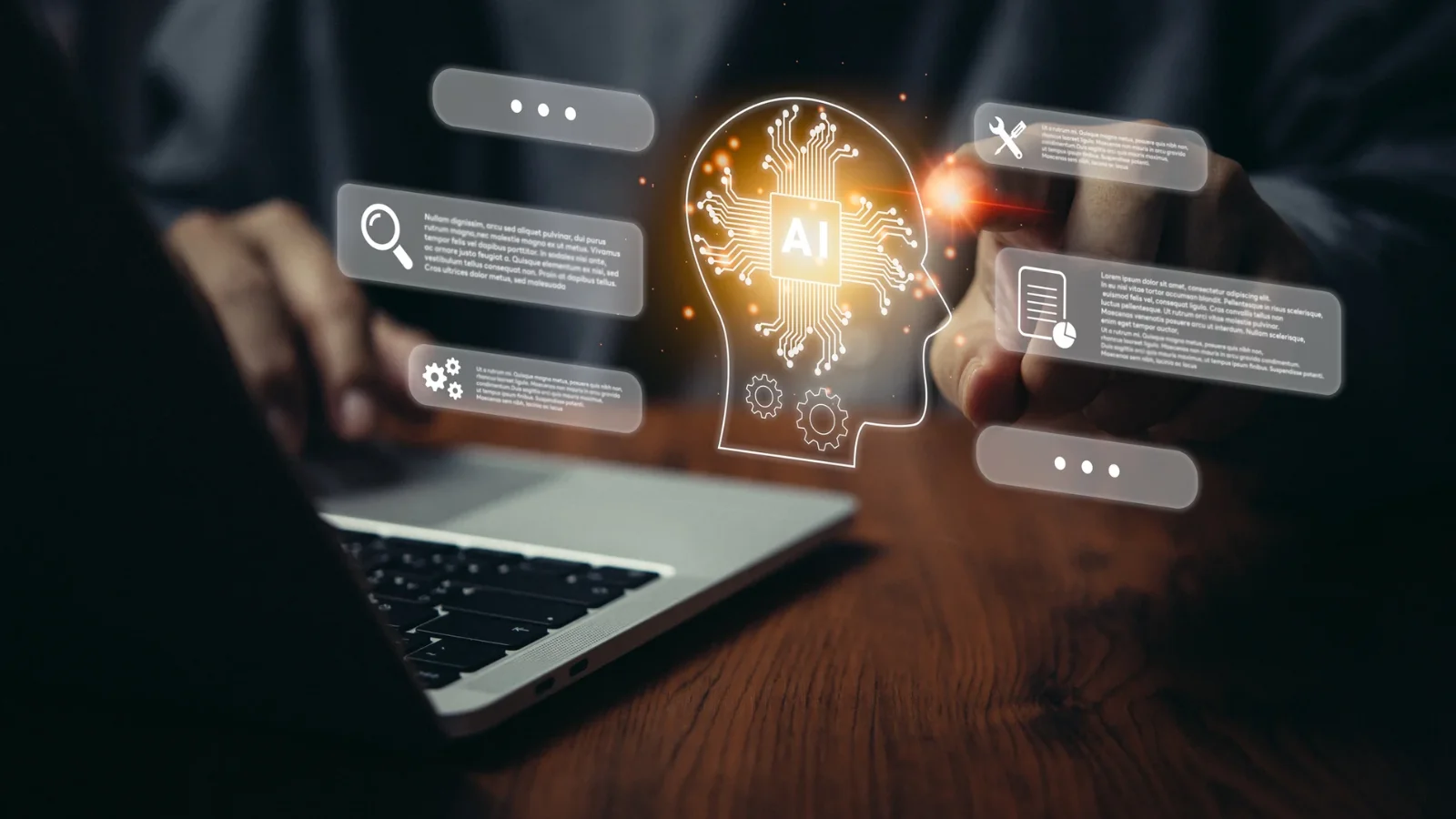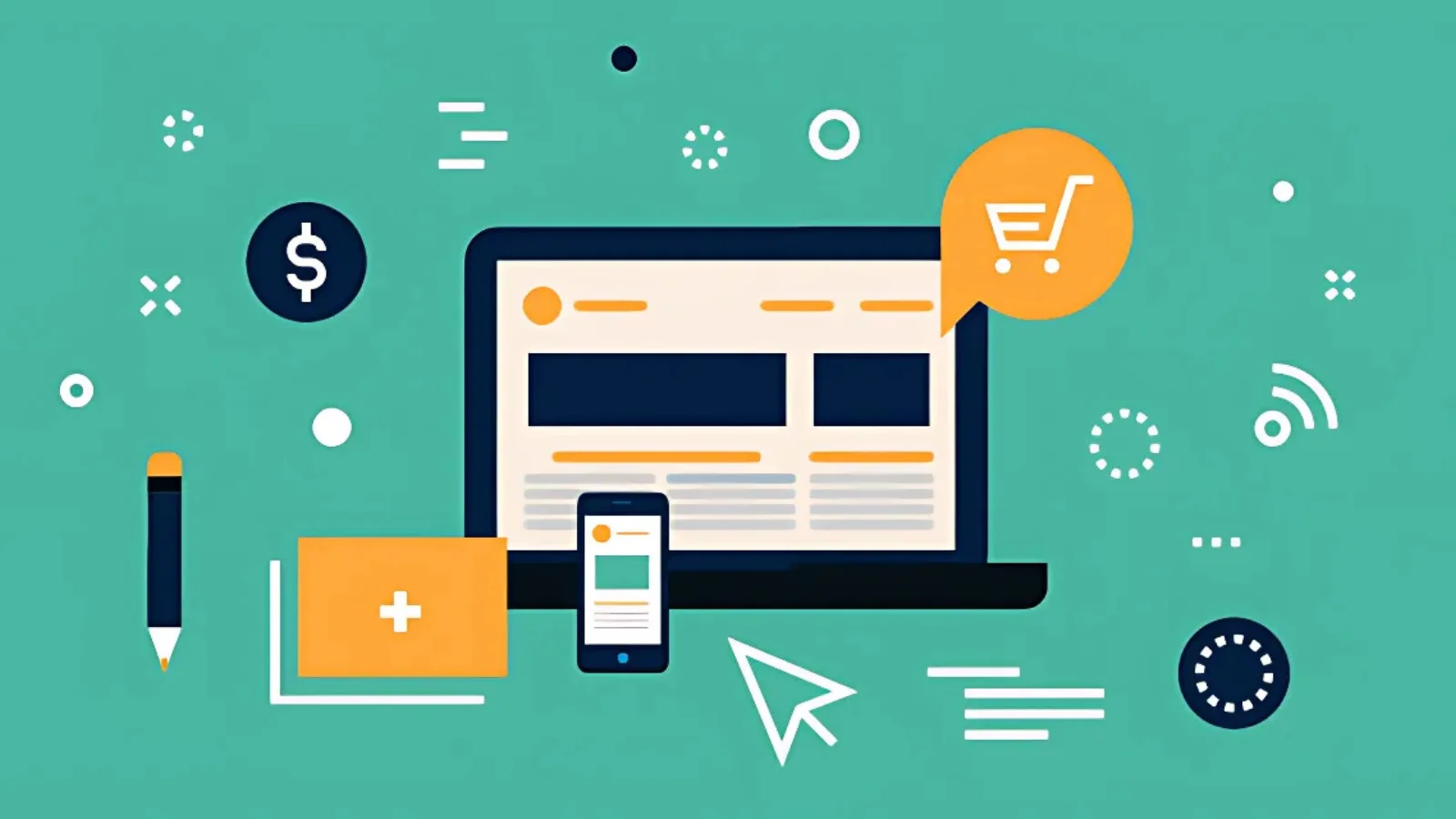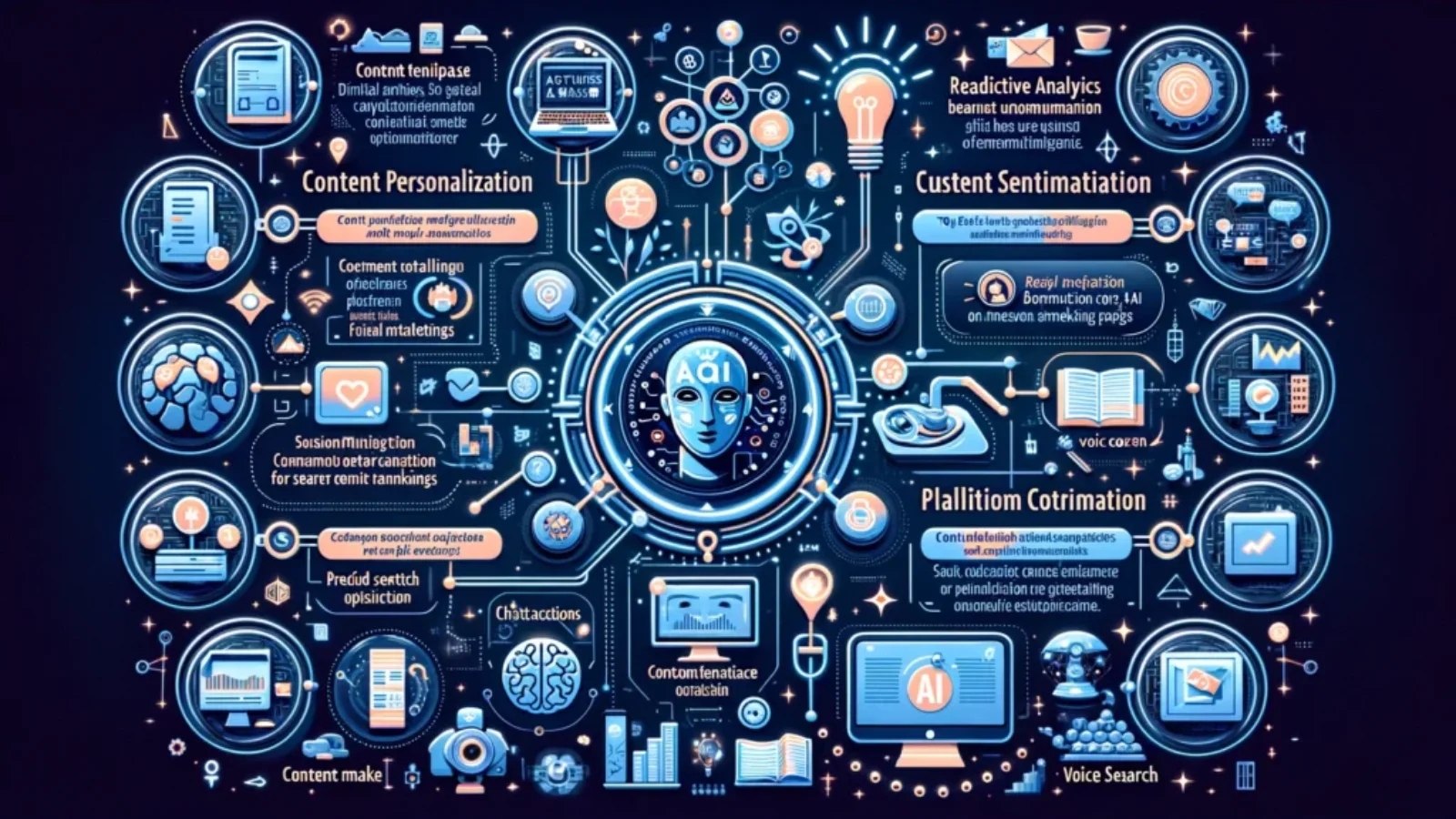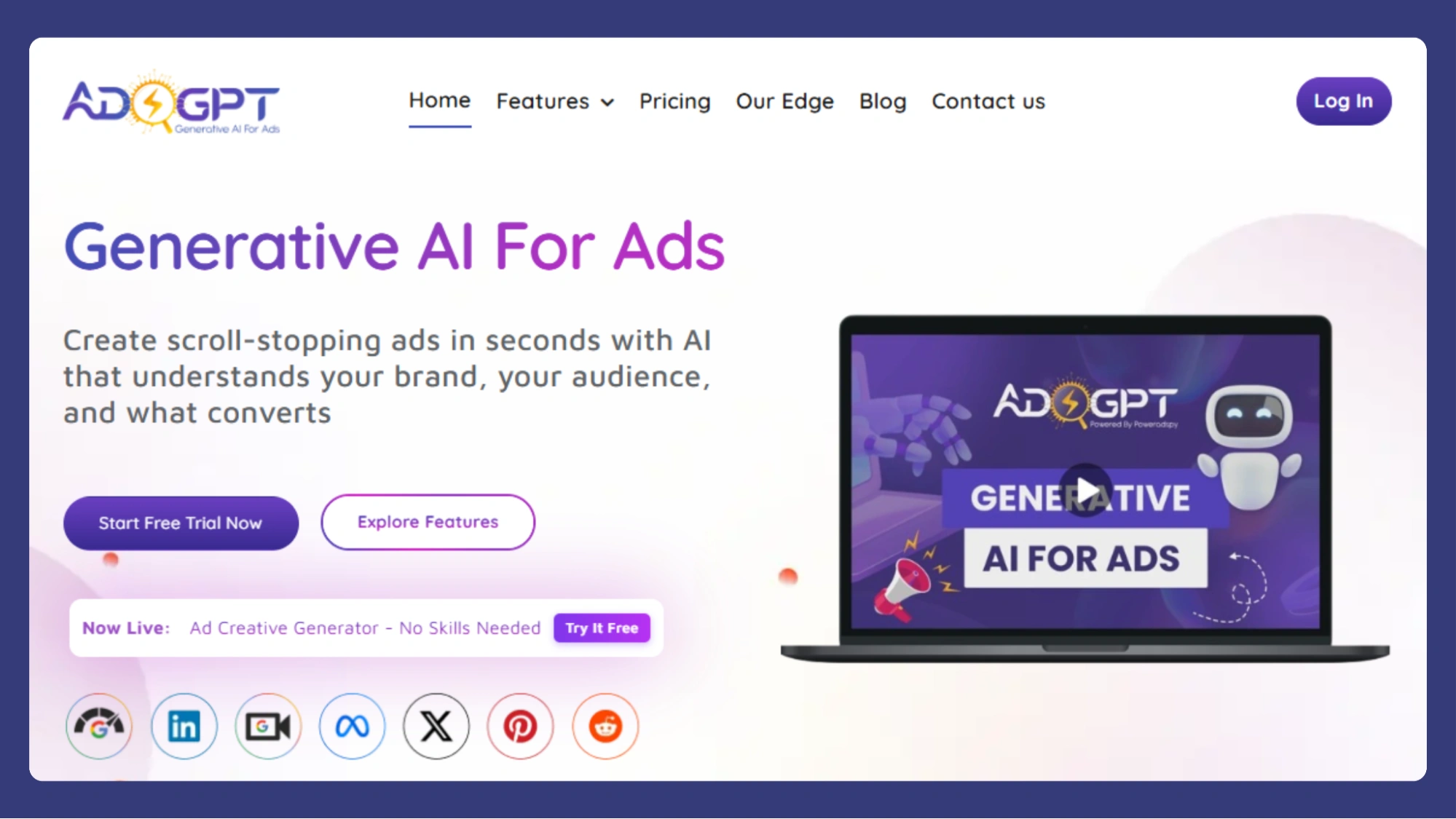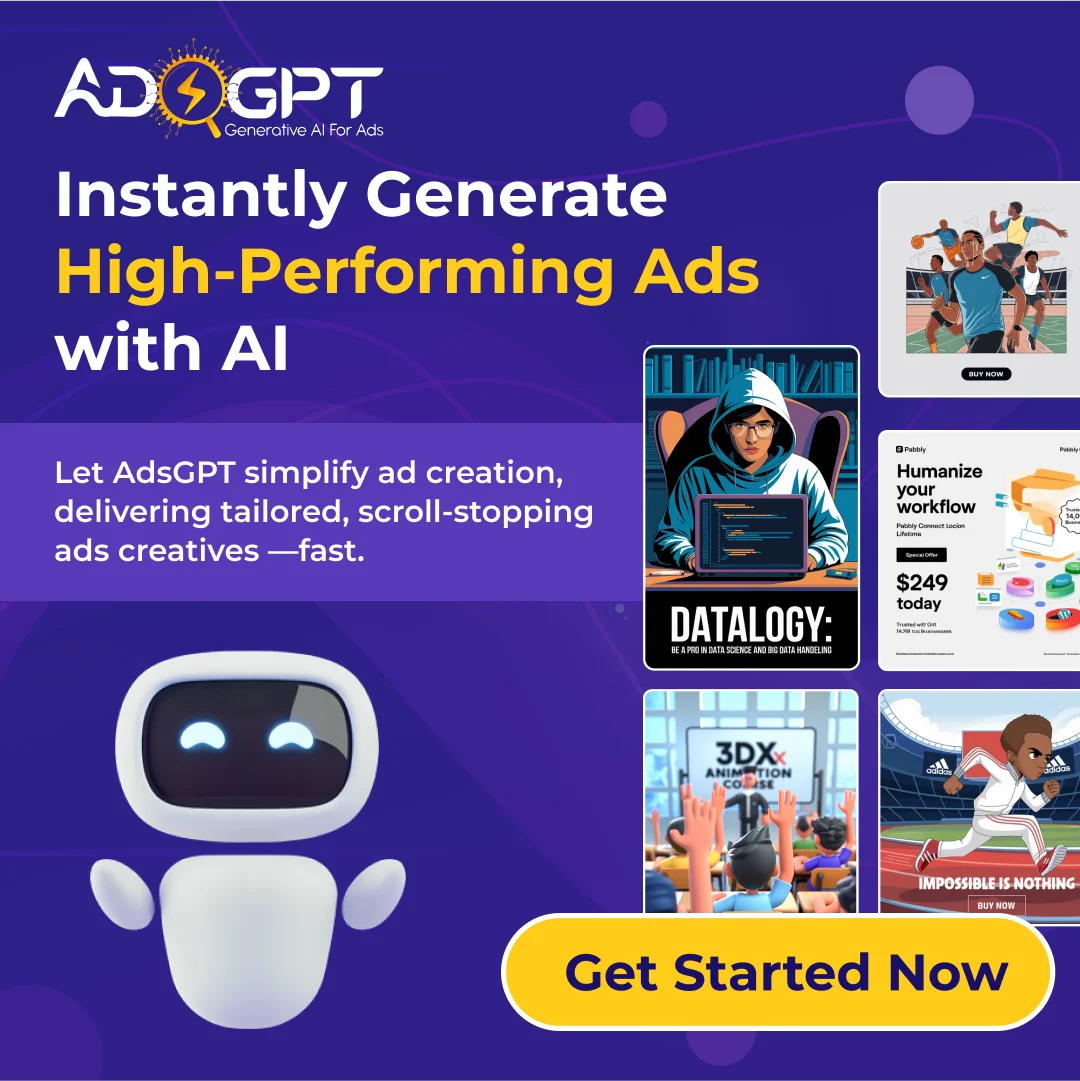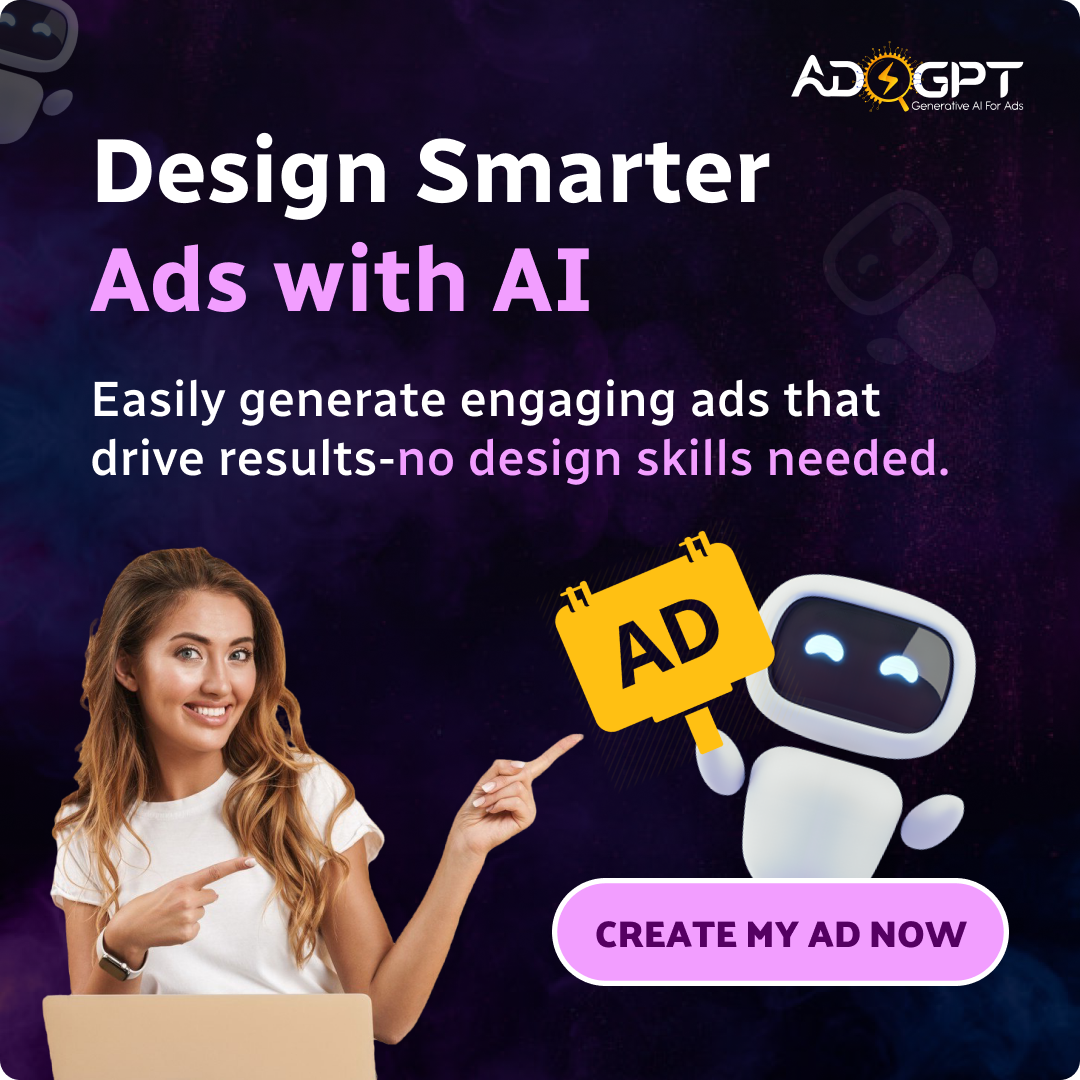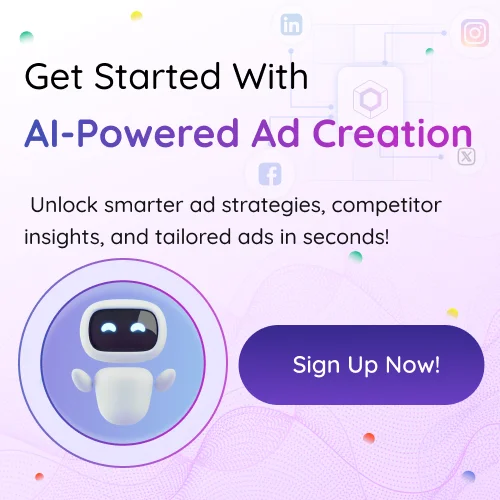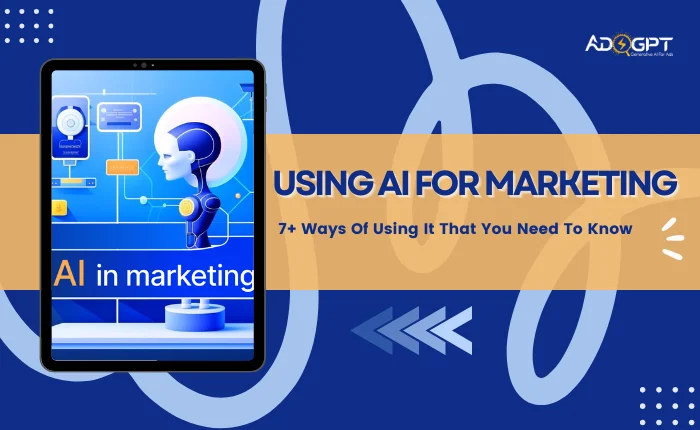
Do you spend hours creating ad copy, analyzing data, or optimizing campaigns with little success? Many marketers and businesses struggle to keep up with changing trends and customer expectations. Using AI for marketing helps solve these challenges by automating tasks, generating high-performing content, and delivering personalized experiences at scale.
AI-driven tools enhance targeting, improve engagement, and save valuable time, making marketing efforts more efficient and effective. Whether you need better ad copy, accurate analytics, or streamlined campaign management, AI offers the required solutions.
In this blog, we will walk you through more than seven practical ways to integrate artificial intelligence into your strategy and achieve better results.
Let’s get started!
In A Hurry? Listen To The Blog Now-
7+ Ways of Using AI for Marketing You Need To Know
AI in digital marketing is transforming by helping businesses analyze data, create content, personalize experiences, and improve customer interactions. Marketers can now automate repetitive tasks and focus on strategic growth. Here are the key ways AI is changing marketing.
1. Data Analytics
Handling large data sets can be overwhelming. Most marketing tools provide analytics, but combining insights from different platforms takes time. AI simplifies this by collecting, analyzing, and summarizing data efficiently.
By using AI for marketing, businesses can gain actionable insights quickly, improving decision-making and campaign planning. AI tools help marketers identify trends, customer behaviors, and opportunities faster than manual analysis.
2. Content Creation
AI assists in generating marketing content, including social media posts, emails, and blogs. It also creates multimedia elements like images and videos, reducing the time marketers spend on content production.
However, AI-generated content often needs human refinement. Marketers should fact-check, edit, and personalize AI-generated text to align with brand messaging. Only 6% of marketers publish AI-generated content without modifications.
Using AI for marketing ensures businesses can scale content production while maintaining quality. AI tools streamline brainstorming, outline creation, and writing, making content development more efficient.
3. Reduces Admin Work
Marketers spend hours in meetings and handling administrative tasks. AI tools automate scheduling, note-taking, and summarizing research, freeing time for strategic tasks.
AI tools also assist with inbox management. For instance, Superhuman uses AI to summarize email threads, draft replies, and speed up searches, saving professionals work hours.
By using AI for marketing, businesses can improve productivity and focus on high-impact activities like strategy and creativity.
4. Content Personalization
AI allows businesses to personalize customer experiences based on online behavior, demographics, and engagement history. It dynamically adjusts content such as website pages, emails, and ads to suit individual users.
For example, AI can analyze users’ browsing habits and deliver tailored product recommendations or personalized email content. AI-driven tools like 6Sense analyze intent data, helping marketers identify potential buyers and customize their approach.
Using AI for marketing helps businesses build stronger customer relationships by delivering relevant, engaging experiences.
5. Media Buying
AI optimizes media buying by selecting the best ad placements for maximum impact. Instead of manually choosing where to advertise, marketers rely on AI-driven platforms that analyze audience behavior and predict ad performance.
Google Ads already incorporates AI in its auction system. Businesses can also use AI advertisement generators to create compelling ad copy in seconds.
6. Chatbots
AI-powered chatbots enhance customer engagement by answering questions, scheduling demos, and nurturing leads. These chatbots use natural language processing (NLP) to respond intelligently, even beyond pre-programmed scripts.
For instance, Drift’s chatbot adapts to user queries, ensuring visitors receive accurate answers
without manual input. Businesses can integrate chatbots on websites and social media platforms to provide instant support and improve customer experience.
Using AI for marketing enables businesses to interact with customers 24/7, improving engagement and lead conversion.
7. Automated Email Marketing Campaigns
AI enhances automated email marketing by generating personalized content and analyzing customer behavior. AI tools predict the best subject lines, send times, and content types to increase open and click-through rates.
Instead of spending hours crafting emails, marketers can use AI to automate campaigns and optimize results. AI-powered email tools create promotional messages with the right tone and structure based on user prompts.
Using AI for marketing allows businesses to streamline email campaigns and improve audience engagement.
8. Predicting Customer Behavior
AI predicts customer actions by analyzing historical data such as browsing patterns, purchase history, and engagement levels. It helps businesses refine marketing strategies and allocate resources more effectively.
By using AI for marketing, companies can anticipate trends, personalize offers, and optimize campaign performance. AI-driven insights guide marketers in crafting high-converting content and targeting the right audience at the right time.
9. Improving Customer Experience
AI improves customer satisfaction by delivering personalized experiences, predicting needs, and optimizing marketing assets. Businesses that leverage AI for customer retention see higher engagement and brand loyalty.
Using AI for marketing enhances customer interactions, ensuring businesses provide relevant content and seamless experiences across multiple channels. AI-driven personalization leads to higher conversions and customer satisfaction.
Read More
How To Unlock Explosive Growth With AI In Digital Marketing?
8 Powerful AI In Marketing Examples That Are Changing The Game!
Use Cases of Using AI For Marketing
Artificial intelligence is revolutionizing marketing by automating tasks, analyzing vast data sets, and enhancing customer engagement. Businesses leveraging AI can gain a competitive edge by making data-driven decisions and delivering personalized experiences. Here are five powerful ways AI is transforming marketing.
1. Data Collection and Analysis
AI streamlines data collection and analysis, enabling businesses to extract valuable insights from structured and unstructured data. Instead of relying on generic AI models, companies should focus on proprietary AI solutions tailored to their brand for enhanced security and accuracy.
Businesses can analyze customer behavior, pricing trends, and campaign performance using AI for marketing. AI models process text, images, videos, and audio, converting them into machine-readable formats using techniques like image-to-text and video-to-text conversion.
Example: AI-Powered Insights at Paris Fashion Week
A leading AI-driven platform analyzed the Instagram strategies of top designers like Dior and Chanel during Paris Fashion Week 2024. Processing over 2.9 million engagements and 130 million follower interactions, AI highlighted emerging fashion trends in real-time.
Best Practices for AI-Driven Data Collection:
- Develop proprietary AI models tailored to brand needs.
- Continuously update AI models with market insights.
- Implement structured data organization techniques for accuracy.
- Use AI-powered tools to analyze customer behavior and enhance personalization.
2. AI in Content Creation
AI accelerates content creation for blogs, social media, and email marketing without compromising quality. According to reports, 58% of marketers using AI-generated content report higher engagement and efficiency.
AI in marketing examples include:
- Generating fresh content ideas and unique perspectives.
- Drafting articles for refinement by human editors.
- Enhancing storytelling with AI-generated visuals.
- Personalizing campaigns based on customer data analysis.
Example: Coca-Cola’s AI-Powered Campaign
Coca-Cola partnered with OpenAI for the “Create Real Magic” campaign, allowing users to generate AI-based artwork using GPT-4 and DALL·E. Winning entries were featured on digital billboards, showcasing AI’s role in user-generated content.
Best Practices for AI-Driven Content Creation:
- Balance AI-generated content with human creativity.
- Use only licensed or original AI-generated assets.
- Continuously evaluate AI content performance through engagement metrics.
3. Hyper-Personalization in Marketing
Consumers expect tailored experiences, and AI enables businesses to deliver them efficiently. AI-driven marketing leverages vast data to track user behavior and create highly personalized content.
Key areas of AI-powered personalization include:
- Customer Journeys: AI-driven funnel analytics optimize marketing strategies.
- Website and App Experience: AI-powered chatbots provide real-time, personalized support.
- Visual Elements: AI tests multiple versions of CTAs, typography, and ad placements to determine the best-performing design.
Example: Netflix’s AI-Driven A/B Testing
Netflix assigns users to different test groups, analyzing engagement levels to optimize UI and content recommendations for an enhanced experience.
4. AI-Powered Trust and Governance
AI-driven marketing models rely on high-quality data, making governance crucial. Proper AI oversight prevents data inconsistencies, compliance risks, and biased decision-making.
Effective AI governance and AI in advertising examples ensure:
- Data privacy compliance with regulations like GDPR.
- Alignment between AI, marketing strategies, and company policies.
- Continuous monitoring and refinement of AI models based on feedback.
Quick Tips for AI Governance in Marketing:
- Implement secure data access controls.
- Work with AI vendors following strict compliance standards.
- Maintain transparency in AI decision-making processes.
5. AI in Marketing Operations
AI enhances marketing operations by automating workflows, optimizing customer interactions, and improving campaign performance. AI-powered journey orchestration helps businesses prioritize customer actions in real-time for higher engagement and retention.
Using AI for marketing, businesses can:
- Analyze customer interactions and refine audience segmentation.
- Optimize content delivery and channel selection.
- Use advanced attribution tools to measure campaign effectiveness.
Example: AI-Driven Marketing Performance Optimization
AI enables marketing teams to track customer journeys, measure ad performance, and identify the best-performing channels, leading to smarter budgeting and improved ROI.
Best Practices for AI-Driven Marketing Operations:
- Identify bottlenecks and eliminate redundant marketing tools.
- Invest in data management solutions for structured analysis.
- Train teams on AI adoption and workflow integration.
AI is reshaping marketing by enhancing data collection, automating content creation, driving hyper-personalization, ensuring governance, and optimizing operations. Companies showcase the power of AI-driven strategies in achieving marketing success.
One such tool making waves in AI-driven marketing is AdsGPT. By leveraging advanced AI capabilities, AdsGPT helps businesses create optimized ad campaigns, analyze audience insights, and automate content personalization with precision. Whether you need data-backed ad targeting or real-time performance tracking, AdsGPT enables marketers to enhance their strategies effortlessly.
AdsGPT- Advanced AI-Based Ad Copy Generator
AdsGPT is an Generative AI for ads platform designed to revolutionize digital advertising by automating the creation and optimization of ad campaigns. Tailored for small and medium-sized businesses (SMBs), it simplifies the ad creation, making it accessible even to those without beforehand marketing experience.
- Instant Ad Copy Generation – Quickly generate customized ad copies for platforms like Google, Meta, LinkedIn, and Twitter, saving time while ensuring high-quality content.
- AI-Powered Creativity – Leverage AI to craft compelling and high-performing ads tailored to your input and industry standards.
- Platform-Specific Optimization – Ensure ad copies are fine-tuned for each platform’s requirements, maximizing engagement and effectiveness.
- Competitor Ad Inspiration – Analyze competitor ads, pick the ones you like, and let AdsGPT generate a similar, high-impact copy in seconds.
- Ad Copy History Tracking – Keep a record of generated ads to refine strategies, revisit past campaigns, and spark new creative ideas.
Wrapping Up
AI is transforming marketing, making campaigns smarter, faster, and more efficient. From personalized content to automated ad optimization, it’s helping businesses connect with the right audience at the right time.
As competition grows, integrating AI isn’t just an advantage—it’s essential. Marketing is changing fast with data, automation, and new technology. Now is the best time to use AI in marketing to stay ahead.
Frequently Asked Questions
Q: How is AI used in marketing?
AI helps marketers predict customer behavior, personalize campaigns, and optimize performance. For example, predictive analytics can identify which customers are likely to buy or may churn, allowing brands to send timely, tailored offers based on past behavior.
Q: What is the 30% rule in AI?
The 30% Rule suggests that AI should handle up to 70% of repetitive or routine tasks, while humans focus on the remaining 30% that require judgment, creativity, and ethical decision-making. It ensures AI enhances human work rather than replacing it.
Q: Is AI marketing worth it?
Yes. Many marketers report faster content creation (93%) and improved brand awareness and sales (81%) using AI. While it shifts workload toward strategy and raises considerations around privacy and cost, AI significantly boosts personalization, efficiency, and long-term performance.

